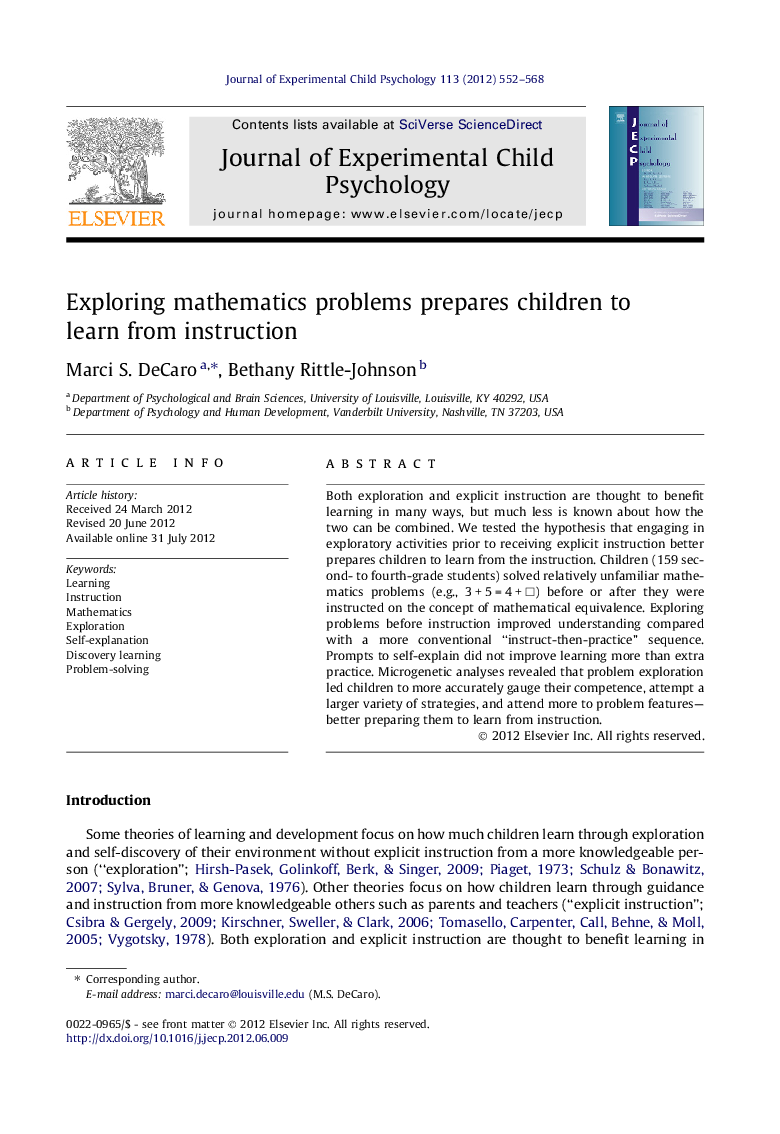| Article ID | Journal | Published Year | Pages | File Type |
|---|---|---|---|---|
| 918221 | Journal of Experimental Child Psychology | 2012 | 17 Pages |
Both exploration and explicit instruction are thought to benefit learning in many ways, but much less is known about how the two can be combined. We tested the hypothesis that engaging in exploratory activities prior to receiving explicit instruction better prepares children to learn from the instruction. Children (159 second- to fourth-grade students) solved relatively unfamiliar mathematics problems (e.g., 3 + 5 = 4 + □) before or after they were instructed on the concept of mathematical equivalence. Exploring problems before instruction improved understanding compared with a more conventional “instruct-then-practice” sequence. Prompts to self-explain did not improve learning more than extra practice. Microgenetic analyses revealed that problem exploration led children to more accurately gauge their competence, attempt a larger variety of strategies, and attend more to problem features—better preparing them to learn from instruction.
► Elementary-school children were taught mathematical equivalence concepts. ► Some explored problems before instruction; others solved after instruction. ► The exploratory activity helped children learn better from instruction. ► Microgenetic analyses revealed mechanisms by which exploration benefitted learning.
